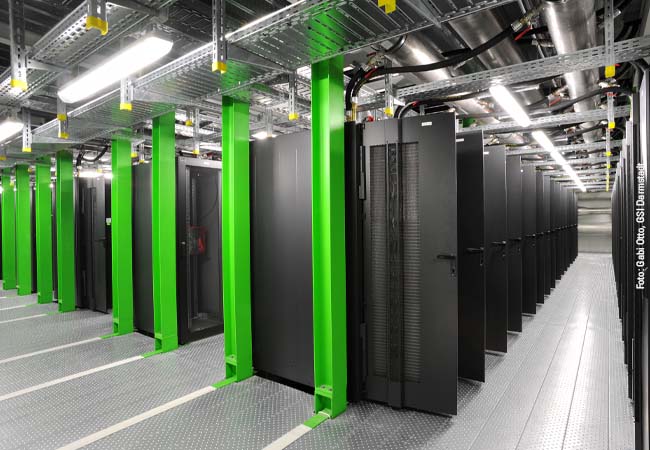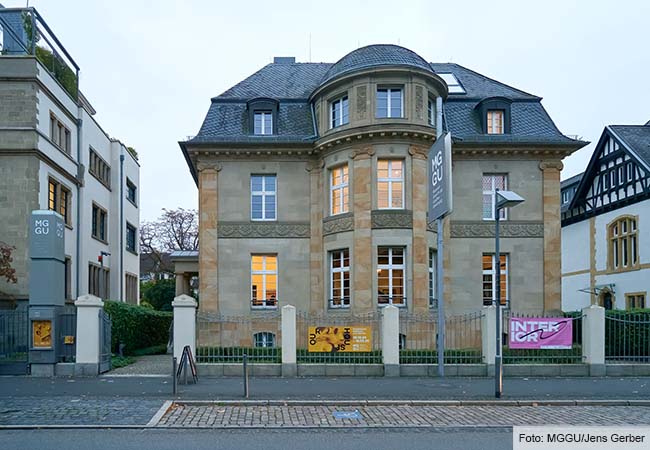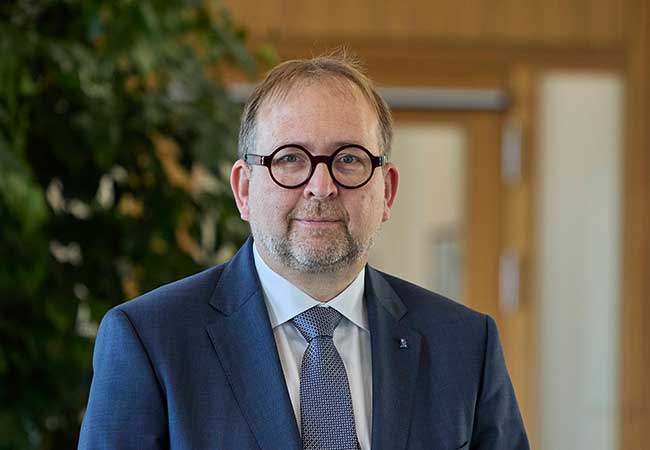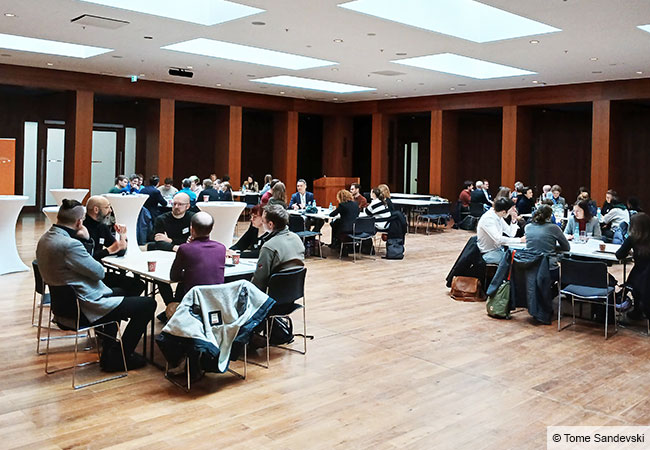Following the decision by the Joint Science Conference on 22 October, the new “NHC South-West Alliance”, to which Goethe University also belongs, will receive grants totalling € 40 million from the national and regional governments.
As of 22 October, Goethe University is part of the National High-Performance Computing Alliance. The “Joint Science Conference” (GWK) announced its decision today in Bonn. The “NHC South-West Alliance” has been approved and will receive € 124 million over a period of ten years (€ 40 million of which will come from Joint Science Conference funds). The alliance covers three federal states, Hessen, Rhineland-Palatinate and Saarland, with facilities in Frankfurt (Goethe University), Mainz (Johannes Gutenberg University Mainz (JMU)), Kaiserslautern (Technical University of Kaiserslautern) and Saarbrücken (Saarland University). € 45 million are earmarked for the future development of high-performance computing at Goethe University, whose own contribution is € 30 million.
With this decision, the Joint Science Conference is also underlining Goethe University’s excellent performance in the area of green IT, for which the Frankfurt team led by Professor Volker Lindenstruth is responsible. Coming in 1st, 2nd and 8th place, supercomputers designed by Lindenstruth have achieved exceptionally good rankings in recent years in the biannual “Green 500” world rankings, on a global scale too. With the grant from the Joint Science Conference, Hessen now has two National High-Performance Computing (NHC) centres.
Professor Enrico Schleiff, President of Goethe University, expressed his delight at the positive decision announced by the Joint Science Conference of the national and regional governments: “This is tremendous acknowledgement of the great and continuous efforts we’ve been making for over ten years in the development and realisation of energy-saving supercomputers. I thank Volker Lindenstruth’s team for their persevering work on the further development of this trailblazing technology, which is meanwhile also a bestseller and in demand worldwide. I would also like to thank our Minister of Science, Angela Dorn, for giving our application her sustained support. With the appointment of further outstanding professors in this field, we will further strengthen this research priority in the coming years and, together with our partners in Rhineland-Palatinate and Saarland, set important new trends in the further technological development of energy-saving computing systems.”
Angela Dorn, Hessian Minister of Science, commended the role of Goethe University in the new alliance: “An alliance makes us stronger because the universities each contribute their own strengths. Professor Volker Lindenstruth and his team at Goethe University have, for example, developed technologies for energy-saving high-performance computers, and the Hessian Ministry of Higher Education, Research, Science and the Arts (HMWK) has supported this development on a large scale for over 10 years as part of the LOEWE Initiative. I’m pleased and proud that this support has yielded such a sustainable return – above all also for the protection of our environment and the reduction of CO2 emissions. Many a data centre today could heat a small town with its waste heat. In the fight against catastrophic climate change, we must make use of every opportunity to reduce energy consumption – and green IT makes an important contribution here, also in the area of high-performance computing.”
Professor Volker Lindenstruth, Professor for High-Performance Computing Architecture at Goethe University and Chairman of the Board of the Frankfurt Institute for Advanced Studies (FIAS), sees Goethe University’s inclusion in the National High-Performance Computing Alliance as an important milestone for further research in Frankfurt in the area of green IT: “As part of the National High-Performance Computing Alliance, it’s now even more possible to use the fruits of our research for the benefit of the general public and for more intensive research work. For example, we’ve accomplished remarkable progress at Goethe University over the last ten years as far as increasing the efficiency of scientific software is concerned. As a result, the same scientific results can be produced with much less energy consumption. Hundredfold increases in computing speed have been achieved for many applications, making even very complex problems calculable for the first time ever. For example, the highly efficient algorithms developed at Goethe University were and are used both in particle physics at CERN as well as at FAIR at the GSI Helmholtz Centre for Heavy Ion Research.”
In addition to the four new centres mentioned above, to date there are also NHC centres in Aachen, Berlin, Dresden, Erlangen-Nuremberg, Göttingen, Karlsruhe, Paderborn and Darmstadt, meaning that from now on all three locations of the alliance of Rhine-Main Universities (RMU) are also part of the alliance.
Background:
High-performance supercomputers are becoming increasingly important in science and research. In view of increasingly complex and large volumes of data, researchers in the widest variety of disciplines are more dependent than ever on high-performance computers. Today, more and more research questions, for example in medicine, physics or chemistry, can only be answered by means of large-scale computing capacities and intelligent applications. That is the reason behind the decision by Germany’s national and regional governments in 2018 to establish a nationwide National High-Performance Computing Alliance (NHC) in order to bundle and further develop the existing strengths of high-performance computing centres within a national network. The establishment of a coordinated alliance is a response to the growing demand for high-performance computing by enabling researchers at universities to access the computing capacity they need for their research across Germany and in line with their needs, regardless of their respective locations. Through the National High-Performance Computing Alliance, the technical and methodological strengths of high-performance computing centres will also be further upgraded and better aligned. At the same time, the aim is to introduce a greater number of researchers to high-performance computing through training and continuing education at the nine NHC centres, to enhance the skills of high-performance computing system users and to foster young talent in order to fully utilise the potential of high-performance computers and to strengthen Germany as a location for research and innovation. A total of € 625 million is earmarked for the National High-Performance Computing Alliance over the ten-year funding period.








